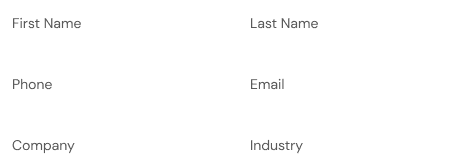
From Freelancer to Full-Time Remote Employee with an Employer of Record
Maybe you identify yourself as a freelancer, but you (or your client) may have misclassified yourself.
If you find yourself turning down new clients and potential projects, in favour of fully working for one existing client, you should be categorised as a full-time remote employee, not a freelancer. And if you have a vested interest in seeing your client’s organisation succeed, perhaps it’s time to consider your career options.
Full-time employment can be a great opportunity for personal and professional development, allowing you to achieve your life goals securely while harnessing your skills and potential.
You don’t have to go back to the traditional office setup to have a fulfilling full-time career, either. The accelerated globalisation of the world has increased the remote work opportunities for employees, allowing you to enjoy the best of both worlds: The flexibility and autonomy that comes with remote work, while having the security and stability of full-time employment.
Why you should move on from freelancing to full-time remote employment
While there are certainly benefits to freelancing, it’s important to assess your life goals and check if full-time employment will be more beneficial for you in the long run.
We’ve shortlisted key reasons you should consider transitioning from freelancing to full-time remote work.
1. Consistent and secure work and income
Freelancing can be unstable as it depends on the number of clients and projects that you can find and take on at any given time. This can be a source of stress and frustration if you go through lean seasons, during months when you have fewer clients and projects to handle.
With full-time employment, you can have the assurance and security of having a stable job. Having a steady income allows you to pay your bills on time and even set aside savings for rainy days.
A stable job allows you to grow in one company for years to come, increasing your professional development opportunities and expanding your career path as you rise in the ranks.
Full-time remote employment also reduces the stress and anxiety that comes from constantly having to seek new projects or part-time work. A stable job allows you to cultivate a healthy work-life balance.
2. Company and government benefits
As a full-time remote employee, you have the right to company and government benefits managed by your employer. Here are some typical benefits you can avail of as a full-time employee:
- Holiday pay - This refers to paid time off for non-working holidays in the year.
- Overtime pay - This refers to compensation received by employees working beyond their normal working hours.
- Paid time off - This is also known as earned vacation time, and it allows employees to receive payment for the time they take off for vacation or personal holidays.
- Bereavement leaves - This allows employees to take time off in case of a death of a family member or loved one.
- HMO - The health maintenance organization (HMO) provides an insurance plan for employees so that they can avail of specific health services.
Employers are also required to manage the following government benefits for full-time Filipino employees:
- Social Security System (SSS) benefits - The government’s insurance program for private employees and volunteers, and includes benefits for retirement, disability and maternity and salary loans.
- Home Development Mutual Fund (HDMF) - The national savings program and house financing plan for Filipinos, it offers short-term loans and savings programs for different purposes.
- PhilHealth benefits - This is the government health insurance program that provides financial assistance and health services.
While it’s possible for freelancers to voluntarily avail themselves of these benefits, it can be challenging to keep track of keeping and submitting the proper documents to the appropriate government office.
An employer can neatly take care of these benefits for their employees so that employees can build their social contributions without the hassle.
3. Sense of belonging and purpose in the workplace
Being part of an organisation with a strong company culture can give you a sense of purpose, especially if you believe in the organisation’s vision and mission. Working alongside like-minded mentors and peers can also give you the much-needed social interaction and community that each of us needs.
A sense of belonging can greatly impact the commitment and engagement you feel in the work you do.
As a freelancer, it can be isolating and lonely to work by yourself day in and day out. Being a part of a professional community is crucial to your personal development and growth.
The challenges of being a freelancer in the Philippines
There are numerous benefits to freelancing, but it’s important to assess the obstacles that come for gig workers. By looking at the challenges, and your willingness to face them, you can make an informed decision of whether this is still the right path for you or not.
1. Difficulties of tax filing and being tax compliant
Freelancers are not only responsible for filing and paying their taxes but also for keeping book records, issuing receipts and submitting reportorial documents to the Bureau of Internal Revenue (BIR).
The following sections in the tax code detail the consequences if a freelancer fails to accomplish these responsibilities:
- Section 232 - Keeping of Books of Account
- Section 237 - Issuance of Receipts guidelines
- Section 264 - Penalty for non-issuance of receipts
- Section 250 - Failure to file reportorial documents to BIR
There are also fines and penalties if a freelancer fails to file their taxes or if they’re not properly registered. Section 254 in the tax code details fines for attempts to evade or defeat tax while Section 259 details fines for illegal collection of foreign payment (which includes commission fees for projects or clients overseas).
2. Lack of job security
One of the most pressing disadvantages that come with freelancing is the lack of job security. Aside from the lack of employee benefits, self-employment income can be inconsistent. Unless you’re a household name, you will need to build your name recognition and gain more experience to consistently generate new clients.
Freelancers are also responsible for any maintenance repairs and fees necessary to continue working, this includes costs for their equipment, software and tools.
3. Lack of benefits
According to the Business World, the new wave of freelancers in the pandemic era saw a myriad of issues in the trade:
- 37% are concerned about a lack of company-sponsored benefits
- 29% are uncertain about future income
- 23% feel a sense of isolation from working alone
Company-issued benefits can give you financial support and assistance during milestones or emergencies. Freelancers have to compensate for this lack by taking on more projects just to be financially secure.
A win-win situation: Benefits of partnering with an Employer of Record (EOR)
Transitioning from freelancing to full-time remote employment can be challenging if you’re doing it by yourself. It’s important to partner with HR professionals to ensure that you and your existing foreign client can decide on a mutually beneficial agreement while ensuring that you are protected and secure under local labour laws.
An Employer of Record (EOR) can do this for you, and more.
Benefits of partnering with an Employer of Record for employees
An Employer of Record will act as your local employer in the Philippines while you continue to report operationally to your client. An EOR can give you the HR assistance you need in filing taxes, receiving timely payroll, paying social contributions and benefits and making sure you’re protected in accordance with local labour laws. An EOR that acts as a strategic HR partner like Remotify will also ensure that you are part of a thriving work community and culture, even in a remote setup.
Remotify aims to provide freer and more fulfilling lives for Filipinos. In our Humans of Remotify series, we’ve showcased Angela Natividad’s testimonial on how she found career satisfaction as a remote content writer. Her anxieties about government contributions and benefits were immediately allayed when Remotify came in to handle these HR tasks.
Benefits of partnering with an Employer of Record for foreign businesses
With the help of an Employer of Record, you can save your foreign client the hassle of having to manage several monthly invoices from you and your teammates and experiencing hits and misses with your salary computation. An employer of record can simplify the billing and payroll process, and remove the weight off your shoulders (as well as your client’s).
How foreign businesses can hire legally in the Philippines (without setting up a local entity)
Misclassifying employees as freelancers not only negatively impacts employees but even foreign businesses. It can lead to legal disputes or penalties on the end of the business owner.
Foreign businesses have two options to hire talents legally in the Philippines. The first option is to set up an entity locally which can be costly in terms of time and resources.
The second and more cost-effective option is to partner with an Employer of Record or a traditional BPO firm.
A traditional business process outsourcing (BPO) firm provides third-party services for both back-office and front-office functions. BPO services typically have fixed costs and can be quite time-efficient. However, employers won’t have any control over the team handling their processes, preventing employers from having human connections with their employees.
An Employer of Record works alongside both the employer and employees, ensuring that HR administrative tasks are handled efficiently while staff members are fully engaged in their work.
If you’re having second thoughts about freelancing, then it’s time to consider all your other options. Full-time remote employment can enrich your professional life while helping you achieve your personal goals.
Your client can become your full-time “employer" without having to set up their own local entity if you partner with a credible Employer of Record in the Philippines. Connect us with your client and we will help you secure your employment benefits today.
Jump straight to a key chapter
Spending Too
Much Time
Onboarding?
your remote hiring in the
Philippines, excellently.
Say Goodbye to High Costs!
Request Your Free Consultation Today andSave a Massive 70% on Your Workforce!

Ready to thrive in a remote-first work environment?


